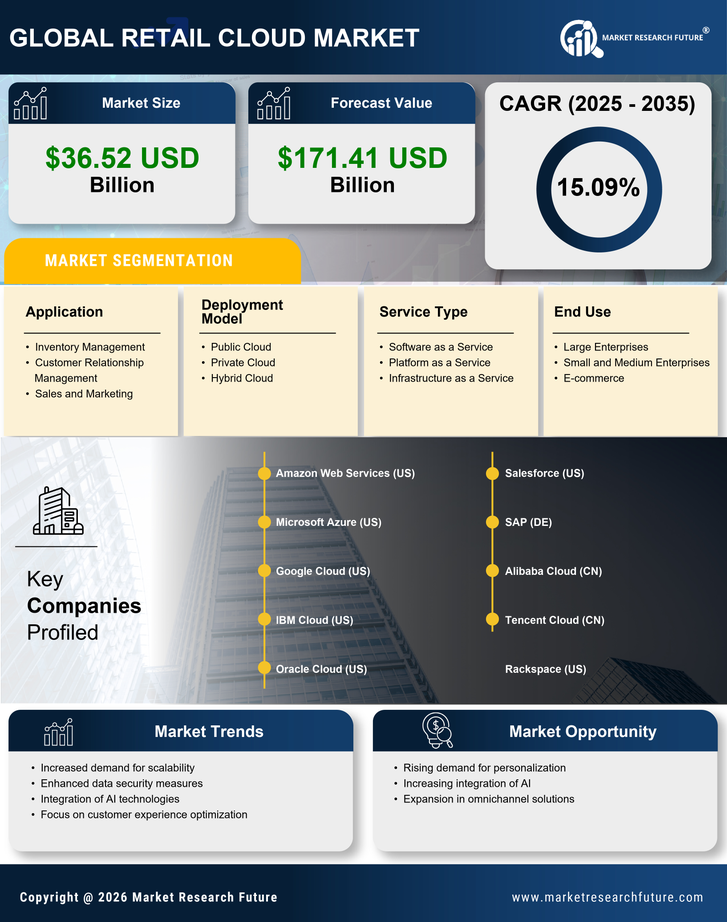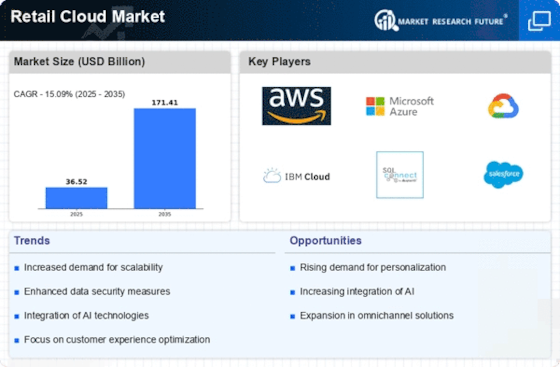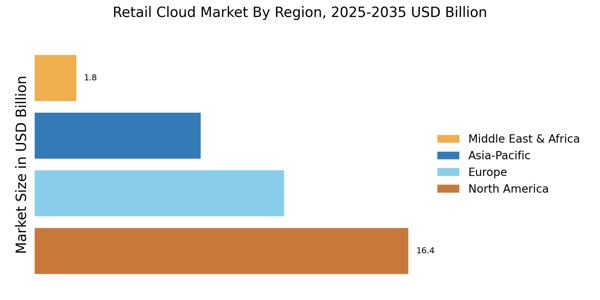Research Methodology on Retail Cloud Market
The published research report by Market Research Future focuses on the global retail cloud market to reveal its current and prospective trends. The research is based on both primary and secondary sources of data. The primary data is collected through interviews with visionary leaders, experts, and industry stakeholders. The secondary data sources include company prospectus, paid databases, websites, books and other such sources of secondary information. Market research future(MRFR) has tried to analyze the market data collected through these sources and has filtered out relevant information based on its relevance and reliability.
The secondary data is available from the past 5-year period to understand the market dynamics. It is filtered out for relevancy and verified for accuracy. The literature review is also conducted to garner further information about the market. The Retail Domain Expert has interviewed respective retail technology experts and stakeholders to understand the market better.
Data Collection
The global retail cloud market is captured in its entirety and evaluated through extensive primary research sourced from global retail companies. Data collected from secondary sources include annual reports, press releases, investor presentations of companies, white papers, certified publications, and articles from recognized authors and websites. The market data gathered is authenticated with the help of various sources, including company presentations, analyst reports, and financial databases. The top-down and bottom-up approaches are employed in the market analysis.
Data Triangulation
Data triangulation is used in the research study to verify the results obtained from the primary research approach. The data obtained from primary sources and the data obtained from secondary sources are verified, checked, and reconciled using the data triangulation method. The analyst's panel validated all the data sources based on the parameters like market trends, market segments, and market dynamics.
Data Analysis
The data is then analyzed and interpreted using qualitative and quantitative analytical tools. Various analysis tools, including Porter's Five Forces and SWOT analysis, are used to develop market scenarios and insights. In addition, the data is also analyzed through market surveys and interviews with key opinion leaders (KOLs) in the retail industry. The market is analyzed based on the consumer survey and information obtained through in-depth interviews with industry experts. Further, mean, median and mode are used to portray the market accurately.
Scope of the study
The initial objective of the research was to investigate and provide information on the current and future market dynamics of the retail cloud market. Accordingly, the market has been segmented based on type, end-use, offerings, application, and geography.
In the research, we have covered the following global retail cloud market segments.
By Type:
- Private Cloud
- Public Cloud
- Hybrid Cloud
By End-Use:
Small and medium-sized enterprises (SMEs)
Large enterprises
By Offerings:
Infrastructure as a Service (IaaS)
Platform as a Service (PaaS)
Infrastructure-as-a-Service (IaaS)
Software-as-a-Service (SaaS)
By Application:
- Merchandising
- Customer Relationship Management (CRM)
- Logistics
- Data Storage
- Others
By Region:
- North America
- Latin America
- Europe
- Asia Pacific
- Middle East & Africa
Methodology Adopted
The research methodology of the market is developed to provide a holistic perspective of the market. A robust process is used to get a clear and precise outlook of the market that consists of market sizing, market drivers, market restraints and technology advancements. The secondary research includes a market overview, industry trends & dynamics, retail insights and developments from other related industries.
The industry insight section provides an in-depth analysis of the latest trends and developments, market size and estimation, market shares and opportunities. The market size is further segmented by geography to give readers a crisp understanding of the market analysis.
Stakeholder Analysis
It is crucial to understand the global retail cloud market dynamics in order to interpret its importance. A thorough understanding of the global retail cloud market stakeholders provides the necessary impetus for this research. These stakeholders include software developers, retail cloud vendors, retailers, third-party providers, financial institutions, regulatory bodies, resellers, and investors. A detailed analysis of their roles in the market process further offers an opportunity to businesses seeking potential partnerships and investments.
Data Validation
The data collected from primary and secondary sources is verified several times to ensure the accuracy of the information. All data sources are selected based on their reliability, objectivity, and accuracy. Furthermore, a three-tier verification process is employed to ensure that all information is collected, verified, and validated appropriately. The three-tier verification process involves internal verification, verification of the data experts, and external verification. The internal verification process focuses on validating critical information, such as multiplicity, perceived accuracy measures, and statistical data sources.
Primary and Secondary Sources
The primary sources incorporate the companies involved in the survey, such as manufacturers, suppliers, industry experts, and raw material suppliers. After getting the raw data, it is further validated and reviewed to prepare secondary sources. The secondary sources typically include paid databases, web directs, magazines, newspapers, journals, and comprehensive reports.
Compilation of Referenced Documents
The research document includes the compilation of all the relevant documentation, such as the industry reports and specific company profiles present in the domain and the associated topics. This compilation is used to understand the global retail cloud market comprehensively. The industry reports include an overview of the sector and a geographical-level analysis of the market.
Geographical Coverage
For the market analysis, the Retail Cloud Market is segmented as follows:
- North America
- Europe
- Asia Pacific
- Latin America
- Middle East & Africa
Country Coverage
MRFR's market analysis covers all the major countries of the above regions, such as:
- U.S.
- Canada
- Mexico
- Germany
- France
- U.K
- Italy
- Spain
- China
- India
- Japan
- Australia
- South Korea
- Argentina
- Brazil
- Colombia
- UAE
- Saudi Arabia
- South Africa
Conclusion
The research methodology adopted by MRFR is comprehensive, ensuring that all the necessary sources of information are carefully collected and analyzed for the report. The method is used to understand the factors influencing present and future market trends. By using reliable data sources and verified analytical techniques, and aims to provide a detailed approach to comprehending the global retail cloud market.


















